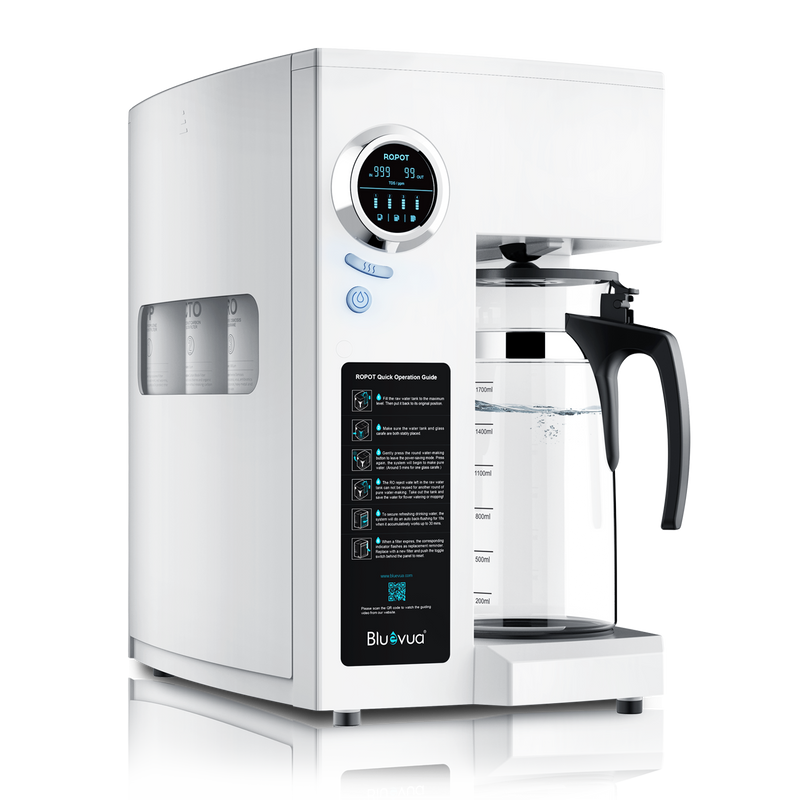Unlocking the Secrets: Why RO Water Filters Are a Game Changer for Your Health!
Water is essential for life, yet many people overlook the quality of the water they consume daily. Contaminated water can lead to various health issues, making water filtration an indispensable part of maintaining good health. Among the myriad of water filtration systems available, Reverse Osmosis (RO) water filter systems have gained significant popularity in recent years. These systems are recognized for their ability to deliver clean and safe drinking water, free from harmful contaminants. As a result, more households are turning to RO systems, not only for peace of mind but also for the health benefits they offer.

Understanding RO Water Filter Systems
At the heart of an RO water filter system lies the principle of reverse osmosis, a process that effectively removes impurities from water. The system utilizes a semi-permeable membrane that allows water molecules to pass through while blocking larger molecules, such as contaminants and impurities. When water is forced through the membrane, it separates clean water from pollutants, resulting in purified drinking water. The process begins with pre-filters that remove larger particles and chlorine, which can damage the RO membrane. Following this, the water passes through the RO membrane, where the majority of contaminants are eliminated. Finally, post-filters ensure any remaining tastes or odors are removed, resulting in crisp, clean water.
An RO system typically comprises several components: pre-filters, the RO membrane, and post-filters, each playing a crucial role in ensuring the water is safe to drink. Pre-filters trap sediment and chlorine, protecting the membrane, while the RO membrane is the core component that performs the heavy lifting by filtering out impurities. The post-filters polish the water, enhancing its taste and smell. This combination of filtration processes guarantees that the water you consume is as pure as possible, making RO systems a preferred choice for many families.
Health Benefits of Using RO Water Filter Systems
The health benefits of using RO water filter systems are significant. One major advantage is their ability to remove a wide range of contaminants from drinking water. Heavy metals, such as lead and mercury, as well as harmful bacteria and chemicals, can be effectively filtered out, ensuring that what you drink is safe. These contaminants can lead to serious health problems, including digestive issues, neurological disorders, and even skin conditions.
Drinking purified water has been linked to numerous health advantages. For instance, many individuals notice improved digestion after switching to RO water, as it is free from chlorine and other harsh chemicals that can disrupt gut health. Moreover, staying hydrated with clean water can enhance skin health, giving it a clearer and more radiant appearance. Friends who have made the switch to RO systems often share how they feel more energized and healthier, attributing this change to their improved water quality.
Environmental Impact of RO Water Filters
In addition to health benefits, RO water filters also contribute positively to the environment. One of the most compelling reasons to use an RO system is the reduction of plastic waste associated with bottled water. By opting for an RO system, households can significantly decrease their reliance on single-use plastic bottles, which are a major contributor to environmental pollution.
Furthermore, modern RO filtration systems are designed with sustainability in mind. Many systems incorporate advanced waste management features that minimize water waste during the filtration process. This means that not only are you drinking cleaner water, but you are also taking a step towards a more sustainable lifestyle. Friends who have transitioned to RO systems often express a sense of responsibility and pride in contributing to environmental preservation.
Choosing the Right RO System for Your Needs
When considering an RO water filter system, several factors should guide your decision. Firstly, assess your household size and daily water consumption to determine the system's capacity that best fits your needs. Next, evaluate your local water quality, as certain systems may be better suited for specific types of contaminants. Lastly, consider the maintenance required for the system, including filter replacement intervals and ease of use. By taking these factors into account, you can select an RO system that not only fulfills your health needs but also aligns with your lifestyle.
Key Takeaways on RO Water Filter Systems
In conclusion, RO water filter systems are indeed game changers for health and well-being. Their ability to provide clean, safe drinking water while removing harmful contaminants makes them an essential investment for any household. Additionally, the positive environmental impact of reducing plastic waste further enhances their appeal. As you consider the health benefits and environmental advantages of using an RO water filter system, think about making the switch for you and your family. Clean water is a fundamental right, and with an RO system, you can ensure that you are taking a proactive step towards better health and sustainability.







commentaires